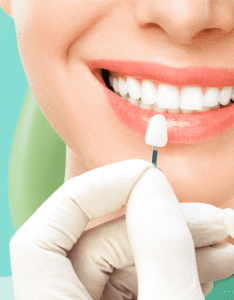Most people don’t realize that overall health is linked to oral health. Seniors become more vulnerable to oral disease as they age. Here are some of the most common issues seniors experience that can lead to dental problems, including the causes and symptoms.
Dental Issue #1: Gum Disease
What causes gum disease? Gum disease is the number one dental condition in seniors that lead to a multitude of serious health problems. Periodontal disease is the inflammation of gums from the build up bacteria between gums and teeth which leads to the breakdown of gums and bone. Gingivitis is the mildest form of periodontal disease.
Symptoms include:
- Halitosis. This foul breath is so strong, even the strongest mouthwash can’t cover it up!
- Discoloration of gums (bright red or purple)
- Swelling of gums causing tenderness and pain
- Bleeding when brushing or flossing
- Soft gums. If your gums move when you brush or you notice that your gum line is receding or pulling away from your teeth causing gaps; food and bacteria can get caught in these gaps, leading to infection.
Why is gum disease so bad? The Surgeon General’s 2000 report, “Oral Health in America” calls out the connection between oral health and overall health. Gum disease is the “Silent X-factor” that promotes the onset of deadly health conditions like lung disease, stroke, heart attack, and oral cancer.
How do you get rid of it? Gingivitis is the easiest to prevent and treat by simply brushing more often and using mouthwash regularly. Periodontal disease, or periodontitis, is a serious condition that affects not just gums but the bones that support teeth. A few trips to the dentist is necessary for perio-scaling and an Rx for medicated mouthwash.
Dental Issue #2. Multiple Medical Conditions
- Arthritis can make it painful to hold a toothbrush and to floss.
- Dementia patients often forget to brush their teeth.
- Diabetes According to the ADA, poor blood sugar control increases the risk of gum problems. One-third of the elderly population has diabetes and three-quarters of the elderly population have pre-diabetes. Conditions associated with diabetes include impaired or delayed mouth sore healing, increased incidence/severity of infections, salivary gland enlargement, and mouth pain (related to neuropathy).
Dental Issue #3. Dry mouth
Why is dry mouth so common in seniors? Medications that treat ailments commonly experienced by seniors can cause dry mouth. Dry mouth is a typical side-effect of medications for blood pressure, allergies, depression & anxiety, high cholesterol, pain, and asthma.
Why is this a problem? Aside from being uncomfortable and stinky, dry mouth can cause swollen tongue which can make it difficult to swallow, speak, and eat. Dry mouth increases the risk of cavities. It can also lead to the build-up of acid in the mouth which can corrode enamel (the protective outer tooth layer) causing tooth decay.
How do you get rid of it? Water! Drink plenty of water daily. Don’t wait until you feel thirsty. Also, chewing gum or sucking on lozenges can stimulate saliva production. A room humidifier can also help.
Seniors experience many issues that can lead to dental problems. At Murfreesboro Family Dentistry, we have the knowledge and understanding required to help seniors handle common dental issues. Click here to contact us today!





